1.
INFO
2. CURRENT
3.
PAST WORK
4.
APPROACH
5.
RESEARCH
6. BOOK!
︎︎︎ Join my newsletter
︎ View the full site on your desktop browser
THINKING FORM: A CREATIVE PRACTICE FOR BRINGING TOGETHER THE EVERYDAY AND BLACK ONTO-EPISTEMOLOGIES
A set of working ethics through Black double consciousness2018 - 2022
Author(s): Myriam D. Diatta
Page Count: Approximately 200 pages
Submitted: September 2021
For a visual representation of the practice, visit here. Site built by Francis Tseng.
For access to full dissertation, visit here. A book based on this research is forthcoming with an independent publishing house (2026).
Read more about my resesearch here.
Keywords
Critical research, Self-accountability, Knowing through making, Reflexivity, Model-making, Autoethnography, Double consciousness, Blackness, Resistance.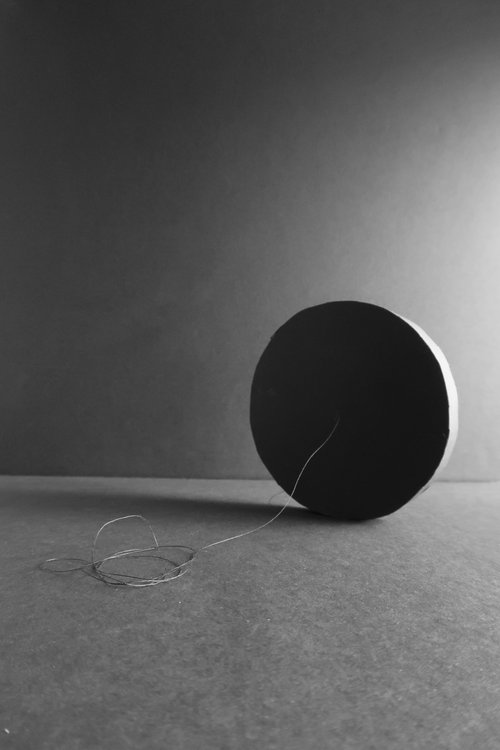

ABOVE: Images of paper models resulting from reflexive model-making. A method developed through the research
ABSTRACT
In political and social projects aimed at making things, services, and relationships differently, critical self-reflection and private investigations of our own accountability are often a secondary ad hoc component. At the same time, the ways we show up in a meeting or for a friend or respond to an emergency may be in deep conflict with the politicized commitments with which we might associate. This doctoral research dedicates an entire practice to aligning the everyday and the politicized commitments one might value in theory. It is shaped by Kevin Quashie and Elaine Scarry’s notions of interiorities in the midst of resistance. Situated at a juncture of critical theory, creative practice, and research, this exegesis joins the figurative table of scholarship and practitioners specializing in the particular task of aligning values and actions.While practices that are both critical and creative are well established and extensively explored, I home in on a narrower realm of interest—approaches that are critical, creative, and explicitly involve the practitioner using material, visual methods to nurture their own accountability in everyday social situations. To concentrate on approaches like these, this research is in conversation with Daria Garina’s Accountability Mapping toward abolition; Robin M. Boylorn’s critical autoethnography practice, interlinking with critical theory; and Torkwase Dyson’s Black Compositional Thought toward Black environmental liberation. Contributing to these approaches, this practice-led research has resulted in a set of methods and a tailored methodology that serves to support creative practitioners whose working processes are personal, political, and visually and materially oriented.
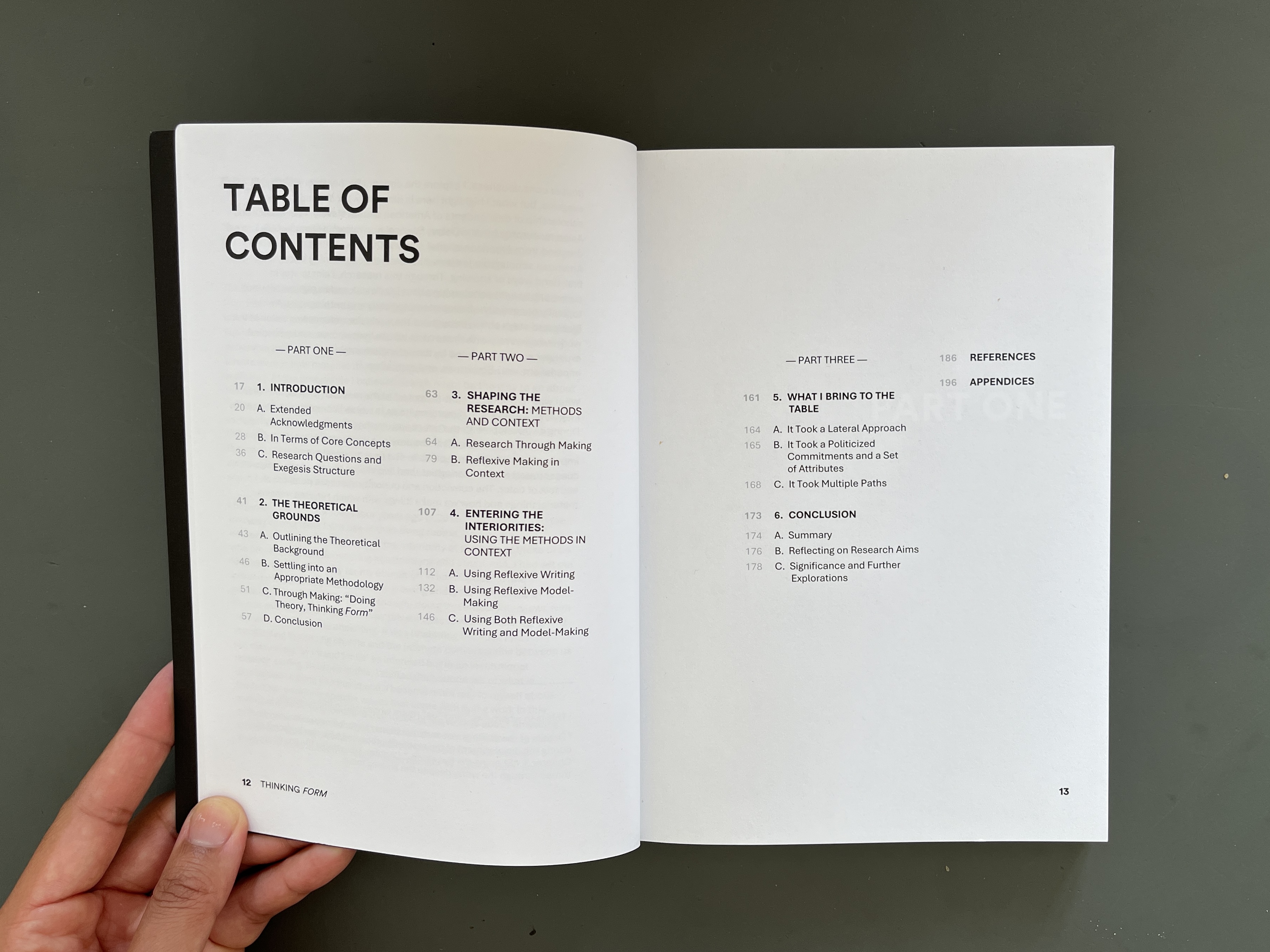
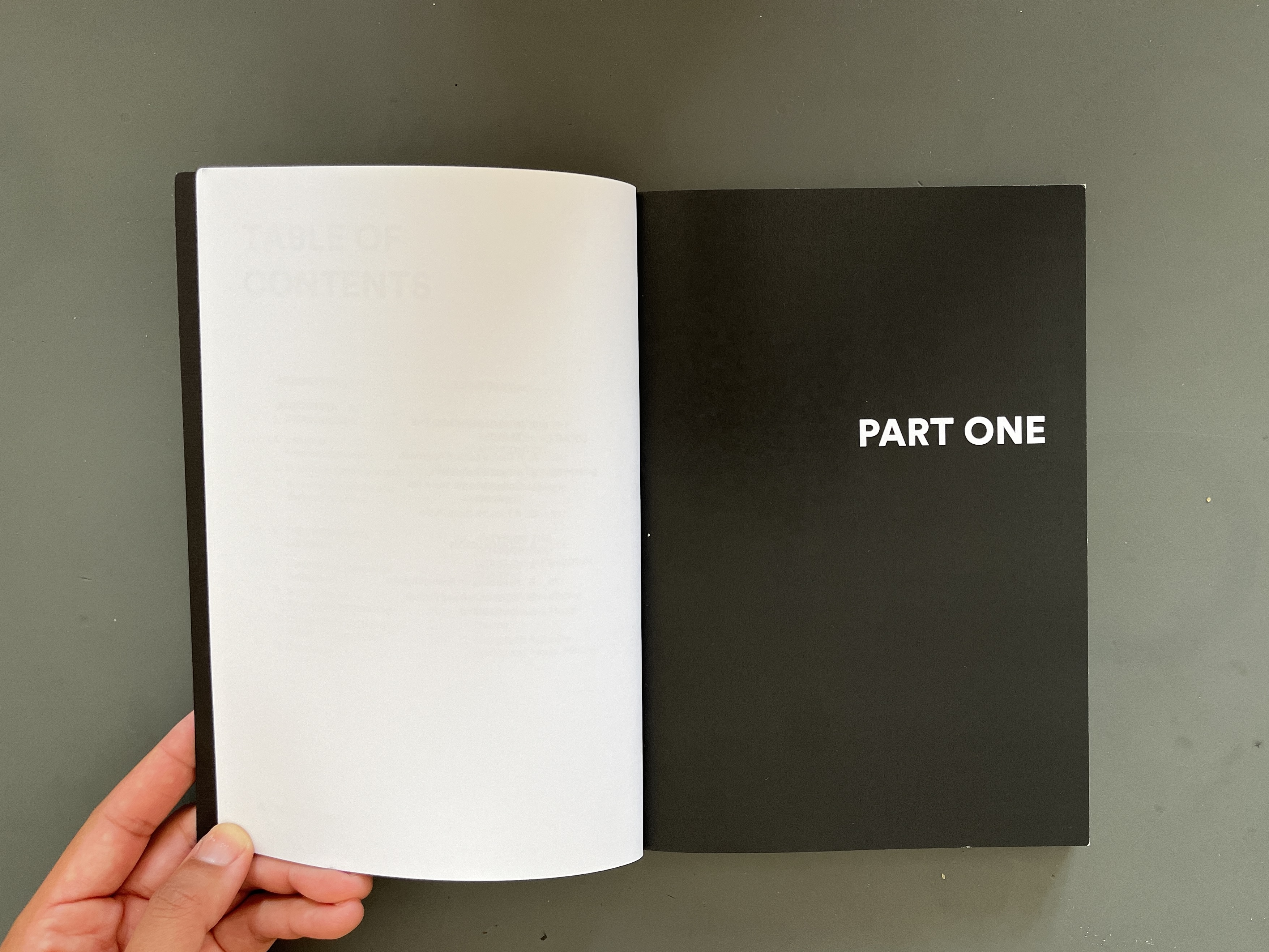
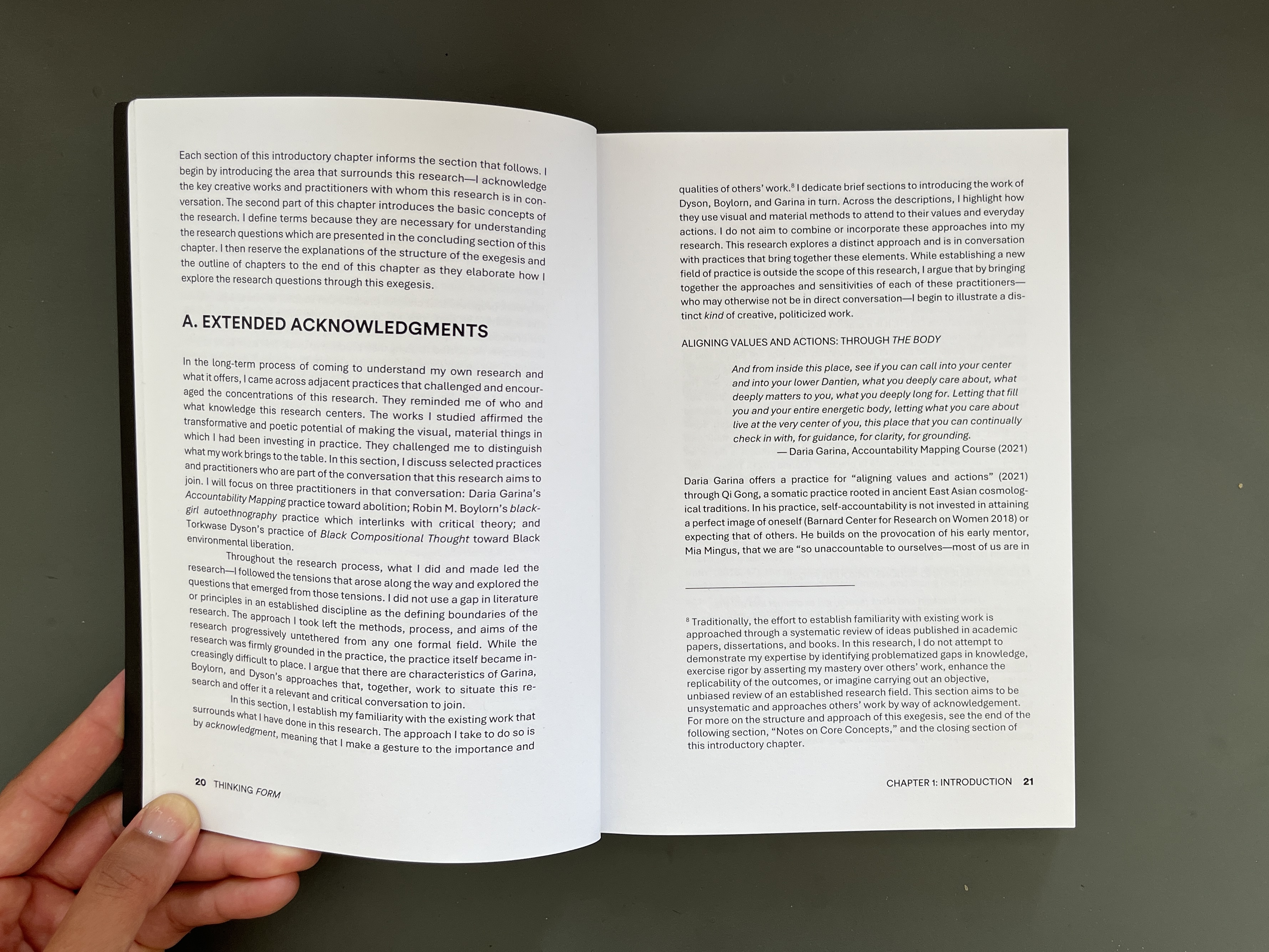
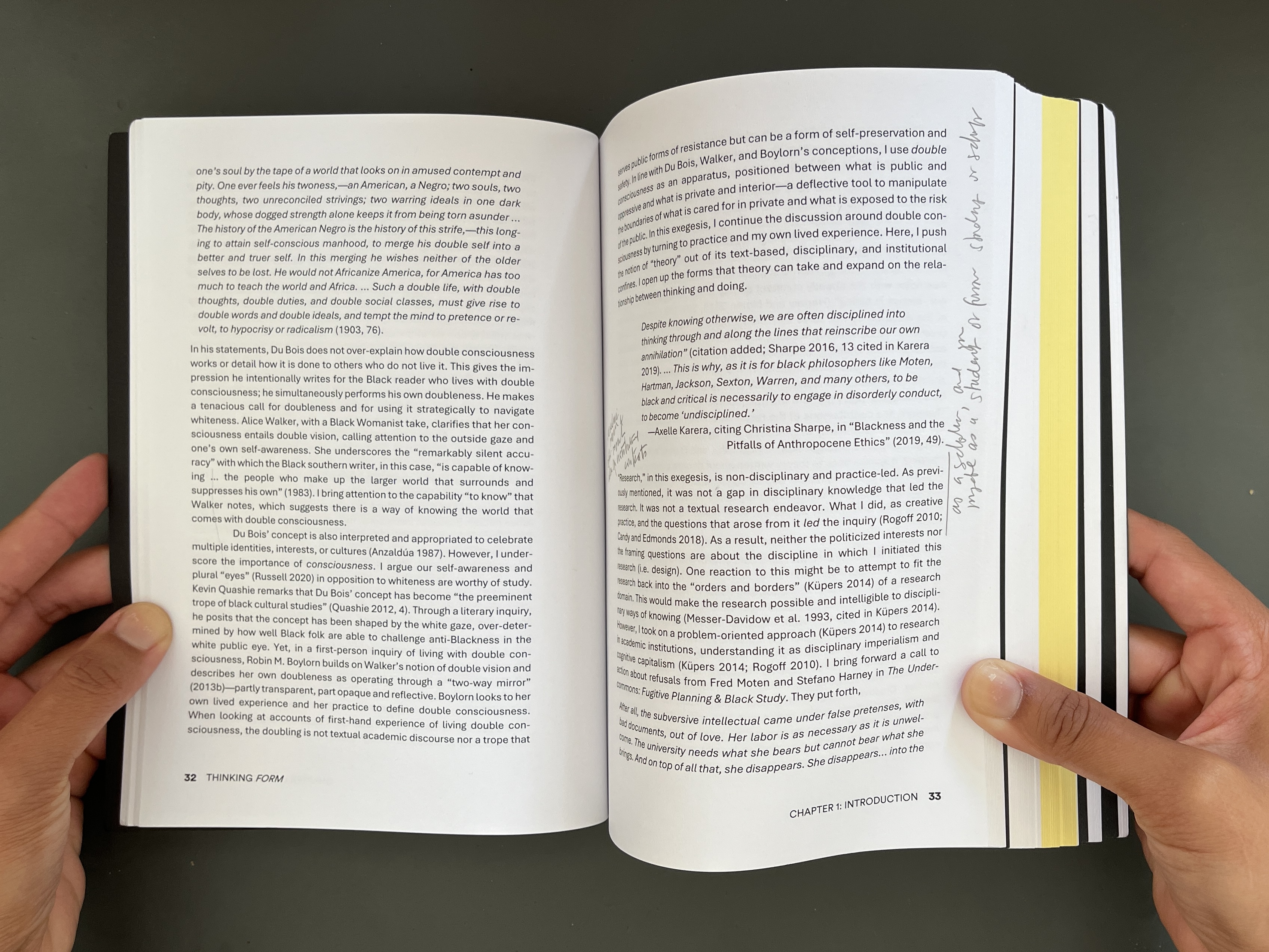
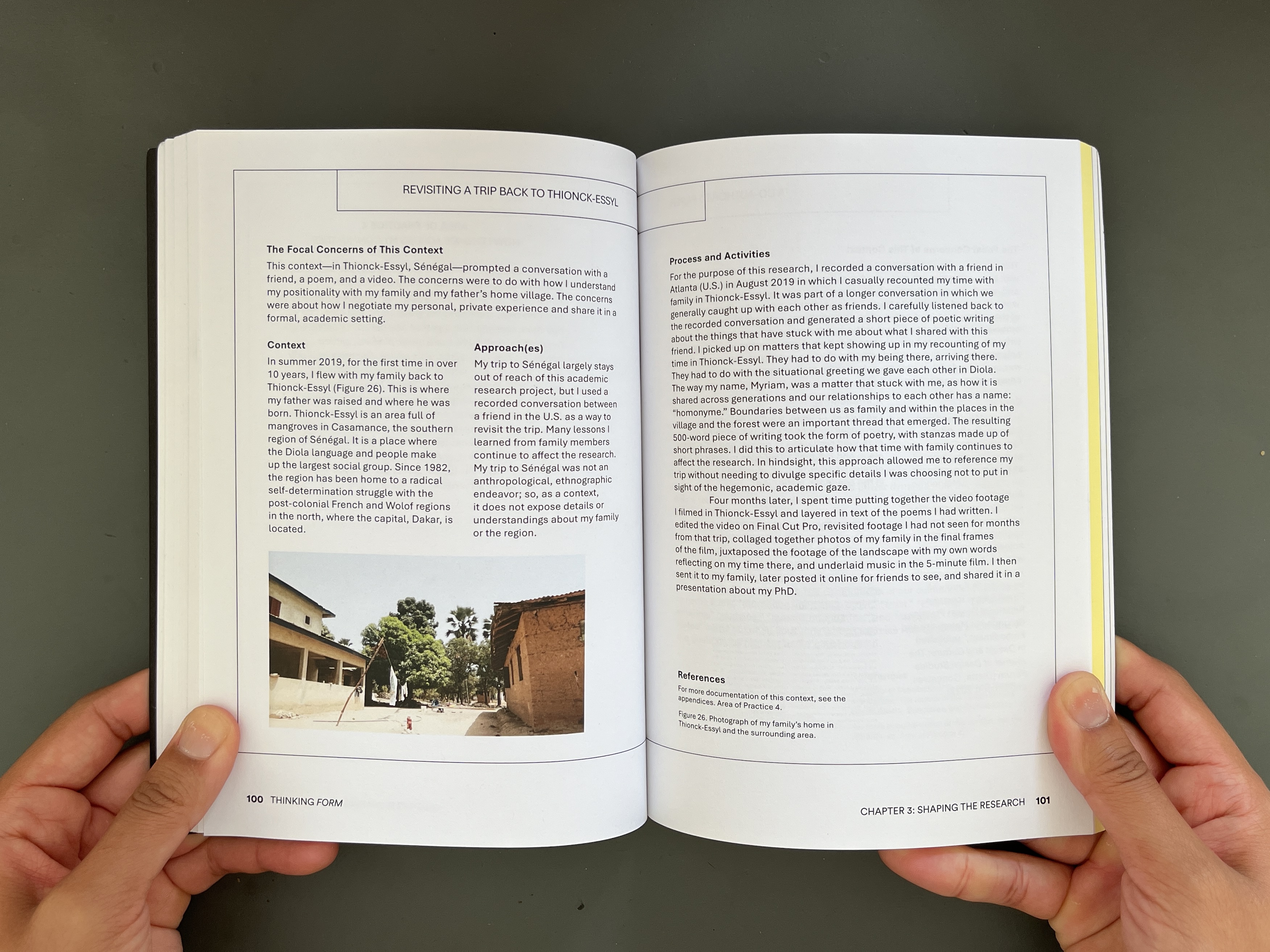
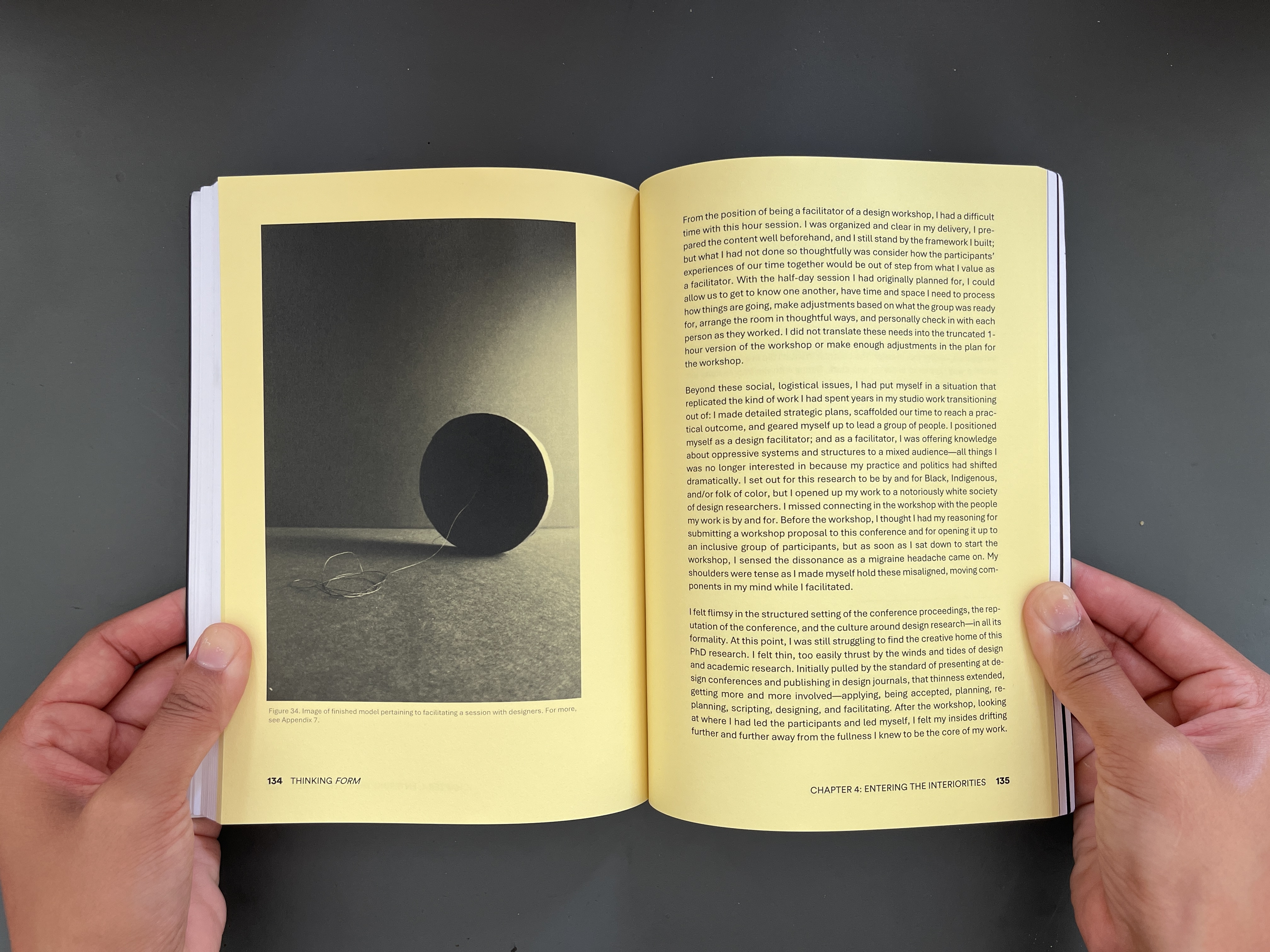
ABOVE: Images of spreads from the limited prints of the dissertation. click the images to see in detail.
(Continued)
This exegesis has demonstrated how two methods—reflexive model-making and reflexive writing—offer a way of aligning my everyday actions and the critical theory to which I have committed. Throughout this research, I made pieces of first-person writing, arranged bodies of text on the page, and made abstract paper models. However, the focus does not lie on the collection of artifacts, but rather on the process in which reflexivity, knowing through making, and critical theory came together. In this doctoral research, I argue that these elements influence the methods. Building on a lineage of articulations about relationships between critical theory and social life, I begin with Stuart Hall and I pull a single methodological through-line that sets up a frame through which the practice can be understood. The research is situated in one of my own politicized commitments—double consciousness. W.E.B. Du Bois’ 1903 conception of Black American double consciousness is a state of being that is derived from living in Blackness. This doubling is due to the particular kind of chronic, heightened self-awareness necessary to survive whiteness. This research was crafted by and for those of us who operate through ways of knowing that are necessary, lived-in, and politicized—like double consciousness. The research has explored what was needed to align my values and actions. The methods are what make it possible to make visible and then investigate and intensify my double consciousness. Ultimately, the research finds that this took multiple efforts: it took multiple paths to move between theory and practice; it took a lateral, conceptual approach; and it took a specified commitment that gave me direction and movement.
While this research is not a direct investigation of non-disciplinarity, the activities of this research are agitating critiques and ruptures away from the institutional borders maintained through knowledge production. The contributions are not understood as advancements or reinforced bridges across disciplines. This doctoral research contributes a practice and methodology that reveals the methods necessary for resisting these advancements and for accessing the private, inner, intersubjective spaces in which everyday and politicized commitments can be deliberately matured. It is just as much a practical strategy as it is a conceptual strategy for meeting each other and finding small inlets into the project of unmaking the world as we know it.